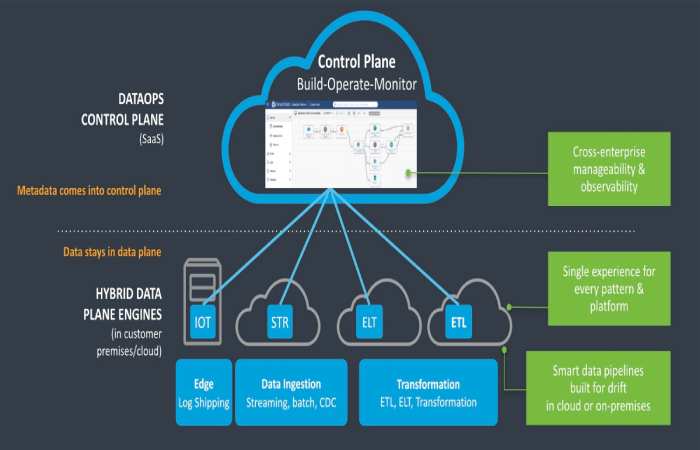Which Describes the Relationship Between Enterprise Platforms and the Cloud – The relationship between enterprise platforms & the cloud signifies a transformative synergy in modern business operations. Enterprise platforms, the backbone of organizational processes, integrate with cloud computing to unlock unprecedented scalability, flexibility, and innovation. In some regions, businesses may rely on local money lenders for financial support, especially when navigating the complex landscape between enterprise platforms and the cloud Cloud infrastructure offers a dynamic environment, enabling seamless access to resources and services.
This alliance empowers businesses to transcend traditional limitations, efficiently manage data, and leverage advanced technologies. The cloud’s on-demand nature complements the stability of enterprise platforms, fostering agility in application development and deployment. Organizations can optimize costs, enhance collaboration, and stay at the forefront of technological evolution in this symbiotic relationship. This article delves into the complicated interplay between enterprise platforms and the cloud, exploring how this collaboration reshapes the landscape of modern business infrastructure.
Table of Contents
What is the Cloud? – Which Describes the Relationship Between Enterprise Platforms and the Cloud
The cloud refers to a net of remote servers connected through the Internet to store, manage, and process data, providing on-demand computing resources. Cloud computing removes the need for physical Infrastructure, offering scalability, flexibility, and cost-effectiveness. Users can access applications, storage, and computing power remotely, enabling seamless collaboration and innovation. Divided into service models like Substructure as a Service (IaaS), Stage as a Service (PaaS), & Software as a Facility (SaaS), the cloud empowers businesses to streamline operations & focus on core competencies, marking a paradigm shift in how computing services are delivered and consumed.

What is an Enterprise Platform?
An enterprise platform refers to a comprehensive and integrated set of software, tools, and technologies designed to support critical business functions within an organization. It is a centralized framework that facilitates seamless collaboration, data management, and workflow automation across departments. These platforms often include components for customer relationship management (CRM), enterprise resource planning (ERP), and other vital applications. An effective enterprise platform enhances operational efficiency, data visibility, and decision-making processes. It forms an organization’s technological backbone, promoting scalability, adaptability, and the alignment of technology with strategic business goals.
Enterprise Platforms vs. Cloud Computing
Enterprise platforms and cloud computing represent distinct yet interconnected elements in modern business technology. An enterprise platform is a comprehensive software framework that seamlessly integrates business processes, including customer relationship management (CRM) and enterprise resource planning (ERP). It often operates within an organization’s on-premises Infrastructure, providing stability and control.
On the other hand, cloud computing is a broader concept involving the delivery of computing services, such as storage, processing power, & applications, over the Internet. While an enterprise platform can be part of an organization’s on-premises Infrastructure, cloud computing extends this capability to off-premises servers, offering scalability, flexibility, and cost efficiency.
Enterprise platforms and cloud computing empower organizations to optimize operations, enhance collaboration, and adapt to dynamic business environments. The relationship lies in the strategic integration of these elements, allowing businesses to leverage both on-premises and cloud-based solutions for comprehensive and flexible technological ecosystems.
Relation Between Enterprise Platform and the Cloud:
The relationship between initiative platforms and the cloud is symbiotic, representing a strategic convergence of on-premises infrastructure and cloud-based services. Enterprise platforms, integral for managing core business processes, can harness the scalability and flexibility of the cloud. Cloud services seamlessly integrate with enterprise platforms, extending computing resources, storage, and applications beyond on-premises boundaries. This collaboration enhances agility, allowing organizations to scale resources dynamically, optimize costs, and foster innovation. The cloud’s on-demand nature complements the stability of enterprise platforms, creating a cohesive environment that adapts to evolving business needs, marking a transformative alliance in the modern technological landscape.

Finding the Right Platform for Your Business
Selecting the right platform for your business is pivotal for success in the digital landscape. Consider your specific needs, industry requirements, and growth objectives. Evaluate platforms based on scalability, integration capabilities, and alignment with your business processes. Examine the platform’s security features, user interface, and support services. Whether it’s an enterprise platform or a cloud-based solution, prioritize flexibility and future adaptability. Conduct thorough research, seek recommendations, and ensure the chosen platform aligns with your long-term strategic goals. Finding the right platform is an investment in efficiency, innovation, and sustained growth for your business in the dynamic and competitive marketplace.
Conclusion – Which Describes the Relationship Between Enterprise Platforms and the Cloud
In conclusion, choosing the right platform is a pivotal decision that profoundly impacts the efficiency and adaptability of your business. Whether opting for an enterprise platform or leveraging the capabilities of the cloud, strategic alignment with your specific needs and growth trajectory is paramount. A thorough evaluation considering scalability, security, and integration capabilities ensures a platform that catalyzes innovation and supports evolving business requirements. The right platform becomes the backbone of operational success. Fostering agility and resilience in the face of technological advancements. Ultimately, a well-chosen platform is an investment that positions your business for sustained success in a dynamic and competitive landscape.
FAQs – Which Describes the Relationship Between Enterprise Platforms and the Cloud
Q: What do you mean by software as a service?
SaaS delivers software applications over the Internet and allows to manage and maintain the software on their devices.
Q: What is the platform as a service?
PaaS is a cloud computing service that delivers a platform that agree customers to develop, run, & manage requests without dealing with the complexities of Infrastructure.
Q: What are the cloud service models?
The cloud service models include Substructure as a Service (IaaS), Stage as a Service (PaaS), & Software as a Service (SaaS).
